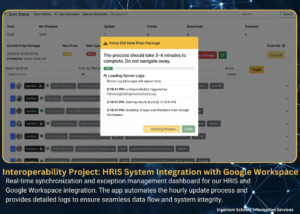In May 2025, Northshore School District in Washington state achieved significant gains in the accuracy and timeliness of its special education data by adopting process improvement techniques that closely echo Deming’s Plan-Do-Study-Act (PDSA) philosophy. Rather than immediately investing in new software, district leaders focused on mapping workflows, testing incremental changes, and measuring outcomes—mirroring the spirit of quality improvement frameworks used in manufacturing. The result: a streamlined system that reduced errors, accelerated IEP processing, and ensured students received timely services.
Source: https://www.edsurge.com/news/2025-05-30-how-one-school-district-is-using-process-improvement-to-fix-special-education-data-errors
Mapping the Problem with a PDSA Mindset
When Northshore’s data team noticed persistent submission errors and delays, they began by “planning”—assembling compliance staff, registrars, and special education coordinators to chart the actual workflow from enrollment to state reporting. Using flowcharts and fishbone diagrams, they uncovered hidden bottlenecks: duplicate data entry, unclear handoffs, and inconsistent form fields. In a “Do”-style pilot, small teams trialed revised data-entry protocols and updated forms. During “Study,” they compared pre- and post-pilot error rates and turnaround times. Finally, in the “Act” phase, the district rolled out successful refinements system-wide. This iterative cycle—plan, test, measure, standardize—reflects Deming’s emphasis on continuous learning.
Translating Manufacturing Principles to Education
Northshore collaborated with a regional cooperative experienced in Continuous Process Improvement. By invoking a systems-thinking lens, they applied tools like SIPOC (Suppliers, Inputs, Process, Outputs, Customers) to visualize each data handoff. The initial “Plan” work surfaced where compliance data duplicated entries across multiple spreadsheets. During “Do,” the team streamlined forms to capture needed information upfront. The subsequent “Study” stage revealed a marked drop in submission errors and faster turnaround for IEP processing. Ultimately, the “Act” phase led to standardized workflows that reduced rework and clarified each staff member’s responsibilities. Although Northshore didn’t explicitly label their efforts as PDSA, the methodology undeniably mirrors Deming’s quality cycles—focusing on small, measurable changes that scale.
Why This Matters for District Leaders
Special education data errors often stem from systemic issues rather than individual oversight. Adopting a PDSA-like approach reframes data inaccuracies as opportunities for targeted process redesign. For district leaders balancing compliance requirements and tight budgets, this strategy reduces staff burnout. When every team member understands how to “plan, test, measure, and iterate,” workflows become more transparent, errors decline, and students receive services without unnecessary delay.
Scaling Process Improvement to Other Workflows
The same process improvement mindset can address other high-risk workflows: chronic absenteeism tracking, multilingual learner documentation, discipline coding, or transcript requests. By running small-scale “Do” experiments—for example, testing a revised attendance-tracking form—and then measuring outcomes, districts can identify which tweaks drive real results. Iterating through short cycles builds a culture where continuous improvement becomes embedded, not treated as a one-time fix.
A Plug for K–12 Consulting & Quality Systems
If your district is seeking to apply Deming-inspired principles—like PDSA—to untangle complex data workflows or elevate quality systems, my consulting practice specializes in this kind of systems thinking. I guide school networks through every phase—planning, piloting changes, studying results, and standardizing best practices—so you can move from reactive compliance firefighting to proactive, data-driven operations. Let’s connect and explore how a PDSA-influenced approach can deliver lasting improvement in your K–12 systems.




